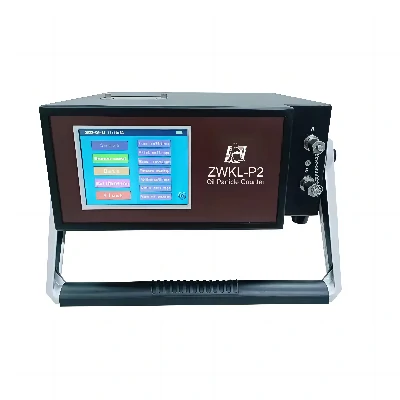Viscosity testers for oil and rheometers are both instruments used to measure the viscosity of fluids, but they differ in terms of their design, functionality, and intended applications. Here’s how they differ:
- Design and Construction:
- Viscosity Tester for Oil: Viscosity testers for oil are typically simpler in design and construction compared to rheometers. They are often portable, handheld devices designed for quick and convenient viscosity measurements in the field or laboratory. These testers may utilize various measurement techniques such as capillary viscometry or rotational viscometry, but they are generally focused on providing rapid viscosity readings for quality control or process monitoring purposes.
- Rheometers: Rheometers are sophisticated laboratory instruments designed for detailed rheological characterization of fluids, including viscosity measurements. They typically feature more complex and precise mechanisms for controlling shear rates, temperature, and other testing parameters. Rheometers are capable of performing a wide range of rheological tests, including viscosity measurements under different flow conditions (e.g., shear rate sweeps, oscillatory measurements), as well as other rheological analyses such as viscoelasticity, yield stress, and creep behavior.
- Measurement Range and Resolution:
- Viscosity Tester for Oil: Viscosity testers for oil are often optimized for measuring viscosity within a specific range relevant to the application, such as automotive lubricants, industrial oils, or cooking oils. viscosity tester for oil They typically provide viscosity measurements in units such as centistokes (cSt) or kinematic viscosity (cSt or mm²/s). The measurement range and resolution may vary depending on the specific model and intended use.
- Rheometers: Rheometers typically offer a wider measurement range and higher resolution compared to viscosity testers for oil. They can measure viscosity over a broad range of shear rates, temperatures, and deformation conditions, providing detailed information about the fluid’s rheological behavior. Rheometers often offer customizable test protocols and advanced data analysis capabilities for comprehensive rheological characterization.
- Control and Testing Capabilities:
- Viscosity Tester for Oil: Viscosity testers for oil are primarily focused on providing rapid and reliable viscosity measurements for quality control or process monitoring purposes. They may offer basic control options for adjusting testing parameters such as temperature or shear rate, but they are generally less versatile compared to rheometers.
- Rheometers: Rheometers offer advanced control capabilities for precise manipulation of testing parameters, including shear rate, temperature, strain, and time. They can perform a wide range of rheological tests beyond viscosity measurement, such as stress sweeps, frequency sweeps, and time-dependent tests. Rheometers also typically provide advanced data visualization and analysis tools for interpreting rheological data.
- Cost and Accessibility:
- Viscosity Tester for Oil: Viscosity testers for oil are generally more affordable and accessible compared to rheometers. They are designed for routine viscosity measurements in various industries and are suitable for users who require quick and easy viscosity assessments without the need for extensive rheological characterization.
- Rheometers: Rheometers are more expensive and specialized instruments primarily used in research laboratories, quality control facilities, and industries where detailed rheological characterization is required. They require trained operators and may have a steeper learning curve compared to viscosity testers for oil.
In summary, while both viscosity testers for oil and rheometers measure viscosity, they differ in terms of design, functionality, measurement range, control capabilities, and cost. Viscosity testers for oil are simpler, more portable devices optimized for routine viscosity measurements, while rheometers are sophisticated laboratory instruments capable of detailed rheological characterization across a wide range of conditions.
